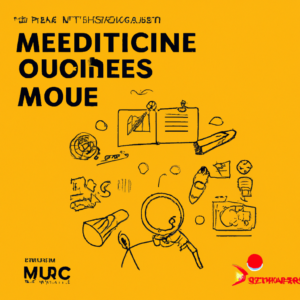Artificial Intelligence (AI) has become an integral part of our daily lives, from voice assistants like Siri and Alexa to recommendation algorithms on streaming platforms. With its ability to analyze vast amounts of data and make decisions, AI has undoubtedly made our lives easier and more convenient. However, the question remains: should we rely on AI for our tasks every day?
The Pros of Using AI
There are several advantages to incorporating AI into our daily tasks:
1. Efficiency and Time-Saving
AI can automate repetitive tasks, allowing us to focus on more important and creative endeavors. From scheduling appointments to managing emails, AI-powered tools can handle these mundane tasks quickly and accurately, freeing up valuable time.
2. Enhanced Decision-Making
AI algorithms can analyze vast amounts of data in a fraction of the time it would take a human. This enables businesses and individuals to make data-driven decisions, improving accuracy and reducing the risk of human error.
3. Personalization and Recommendations
AI algorithms can analyze our preferences and behavior patterns to provide personalized recommendations. Whether it’s suggesting movies, music, or articles, AI can help us discover new content tailored to our individual tastes.
The Cons of Over-Reliance on AI
While AI offers numerous benefits, there are also potential drawbacks to consider:
1. Dependence and Skill Erosion
Relying too heavily on AI can lead to a decline in our own skills. If we become overly reliant on AI to perform tasks, we may lose our ability to do them manually or think critically. It’s important to strike a balance between utilizing AI’s capabilities and maintaining our own skills.
2. Privacy and Security Concerns
AI relies on collecting and analyzing vast amounts of data, which raises concerns about privacy and security. There is always a risk of data breaches or misuse of personal information. It’s crucial to be cautious about the data we share and ensure that AI systems have robust security measures in place.
3. Lack of Human Touch
AI may excel at efficiency and accuracy, but it lacks the human touch. In certain industries, such as customer service or healthcare, human interaction and empathy are essential. While AI can assist in these areas, it cannot fully replace the value of human connection.
Striking a Balance
The key lies in finding a balance between using AI and maintaining our own capabilities. Here are some guidelines to consider:
1. Identify Tasks that Benefit from AI
Recognize tasks that can be automated or enhanced by AI. This could include data analysis, scheduling, or repetitive administrative work. By delegating these tasks to AI, we can focus on more complex and creative endeavors.
2. Continuously Learn and Adapt
As AI evolves, it’s essential to stay updated and continuously learn new skills. By adapting to technological advancements, we can ensure that we remain valuable contributors in an AI-driven world.
3. Prioritize Privacy and Security
When using AI-powered tools or platforms, prioritize privacy and security. Be mindful of the data you share and ensure that the systems you use have robust security measures in place.
4. Embrace the Human Touch
While AI can assist in various tasks, remember the importance of human connection. Embrace opportunities for face-to-face interactions, empathy, and emotional intelligence. These qualities are uniquely human and cannot be replicated by AI.
In conclusion, AI offers numerous benefits in terms of efficiency, decision-making, and personalization. However, it’s crucial to strike a balance between utilizing AI’s capabilities and maintaining our own skills and human connection. By doing so, we can harness the power of AI while ensuring that we remain adaptable and empathetic individuals in an increasingly AI-driven world.




